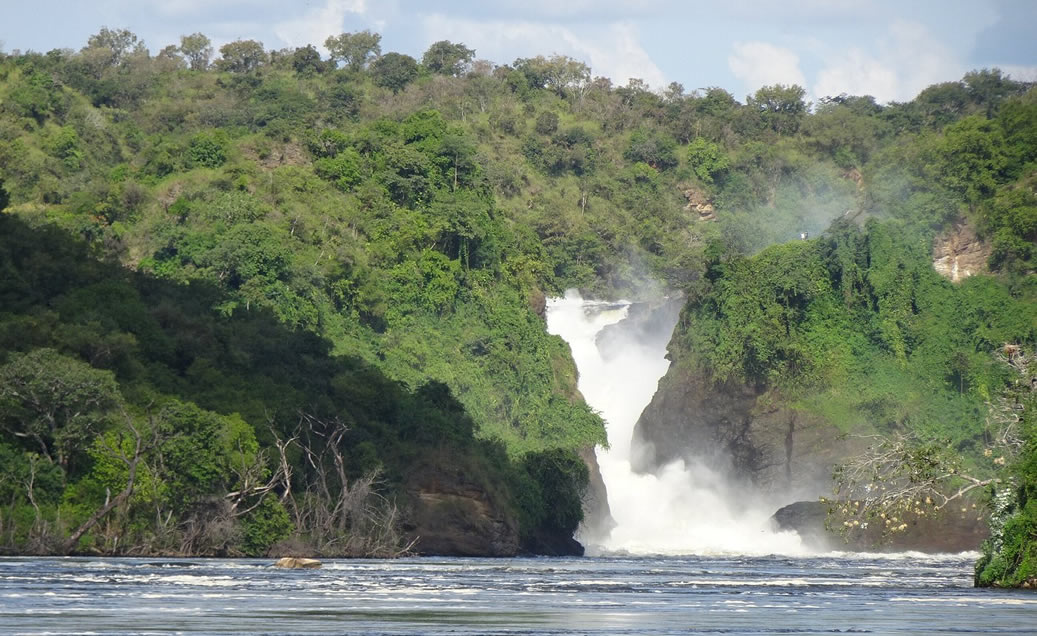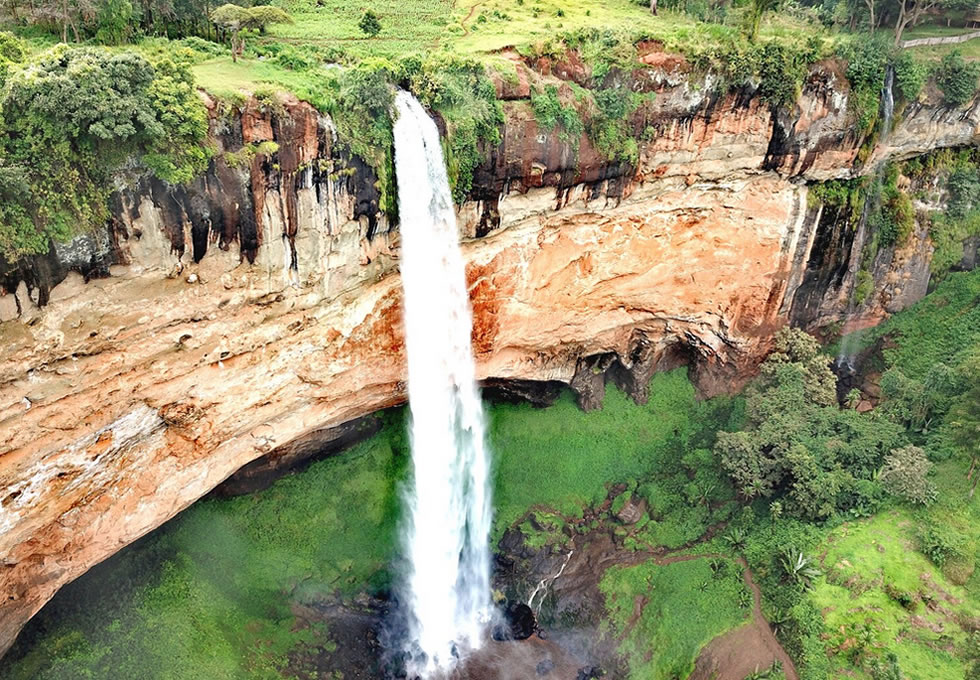For every Mukonzo, the surname must tell the position in birth counting whether the child is the first, second, or third, up to the last born.
Who they are?
The Bakonzo, sometimes called Bayira or Banande, are a Bantu-speaking group of people in western
Uganda and eastern DR Congo. In Uganda, they are concentrated in Kasese and Bundibugyo districts.
Others live in Bunyangabu and Ntoroko districts. The Bakonzo are the subjects of the Rwenzururu Kingdom, whose king is Charles Wesley Mumbere.
The Bakonzo name their children according to their order of birth.
IN SUMMARY
The number matters. According to Grandfather (sokulhu) Stifano Bwambale Murokole, a resident of Kakone village in the Mahango sub-county in Kasese District and a veteran Kikonzo culture advisor in the Bahira clan, the names of the Bakonzo were given to boys in seven birth ranks, whereas those for female children are eight.
Culture.
Have you ever considered the origin of your name? Fred Stephen Bwambale of Enganzi News writes that for anyone schooled in the culture of the Bakonzo, it is easy to tell the order in which someone was born just by knowing that person’s name.
“Birth ranks” in this regard, is the order in which the children born of the same mother and father follow each other, ranging from the oldest to the youngest.
For every Mukonzo, the surname must tell whether the child is the first, second, or third born, up to the last born.
Some other names are given depending on the situation like war, famine or massacres at the time the bearer was born.
According to sokulhu Murokole, “The Bakonzo women have for a long time been among the most fertile in Africa. By the 1990s, some strong women were producing up to 16 children. Such a woman would have a chance to finish all the male and female names”.
He listed the names given to the boy children, from the firstborn, as; Baluku, Bwambale, Masereka, Kuule, Thembo, Mbusa, and Ndungo.
The female names are Musoki or Masika, Biira, Kabugho, Mbambu, Ithungu, Kyakimwa, Nziabake, and Bulhubasa.
“These names are not given without considering who was born before who. You cannot name your firstborn Masereka. This will be a disorder because Masereka is the third-born male child,” Murokole said.
One must be wondering where the name “Mumbere” is, which is sometimes mistaken for a king’s title because Omusinga Charles Wesley Mumbere is not mentioned in the order.
“Mumbere” is another name for “Baluku” (the first-born male child). Others say “Kambere” to refer to the same person – Mumbere.
However, the same child can be named “Nzanzu” if both parents were virgins at the time they consummated their marriage. A first-born female produced by such parents is named “Kanyere”.
Murokole further explains that “Kasoke” and “Musoki” are names for a firstborn who is male and female respectively, if the child’s paternal and maternal grandparents are still alive by the time he or she is born.
The first time the parents produce a child of a different sex from the first one, the child is named “Muhindo” if male or female, and “Mbindule” if female.
Bakonzo names are given depending on the situation at birth
“Bethubanji” is another meaningful name given to the firstborn who is able to see the same light as his or her parents’ grandparents. This means the baby has its grandparents alive at the same time their parents are also living. This child is referred to as “Akatsukulhu,” meaning a person who has two generational grandparents.
Much as death is something that everyone fears to associate with, the Bakonzo have names that tell that someone was born after the other child/children had died. If this person is male, he is named “Kibaya”, “Kyithi”, “Bisogho”, “Kamabu” or “Bisiika/Kyirere”, whereas females in that category are named
“Mutsuba”, “Kyabu” or “Bisiika” and other names like bahwere.
The twins are named according to their order of birth too. The first to come out is named “Nguru”, while the second is “Ndobya”. The child who follows twins is named “Kitsa”, followed by “Kamalha”. These apply to both sexes.
There are also situational names such as “Muthende” for a child born when boys had gone for a circumcision initiation ceremony, “Byerire” for one born during time of great harvest and many other proverbial names like Byanzira when one is born in along the way.
However, despite the unique way of naming children, this culture is facing extinction because of factors such as the modern campaign of family planning in which parents are encouraged to produce a number of children they can easily provide for.
Amos Bakalhania Kule, a resident of Kaberere in Kyondo Sub-county in Kasese District, attributes the fast extinction of some of the names to people drifting away from their culture by opting to copy names whose meaning they have no idea of.
“Our people are running away from their culture and that is why our culture is facing destruction. Why should someone copy a British or American name and make his child known by that imported name instead of popularizing the name Baluku, Bambale or Masika?” he wonders.
Amos said much as family planning is now necessary because of the prevailing economic situations and scarcity of land for production, it is important to preserve the culture by giving the few children the original names.
For Stifano Murokole, the Bakonzo naming culture will only persevere if all [birth ranks] children are produced and bear the names.
“It is not preserving when you produce five and give them the right names. What we need to do is to produce all the children because these names were given by our ancestors for a reason,” Murokole suggested.
Fr. Balinandi Kambale Raphael of Kasese Diocese, also a Lhukonzo literature author, said the Bakonzo women are still fertile to fulfill God’s command to “produce and subdue the world”.
“It is poverty that forces the people to produce few children but it is also ignorance of culture that they are not giving those few their real names. The women are still fertile and if possible, they should produce all [birth ranks] the children to fill these names,” said the priest, who also teaches Lhukonzo language and culture on local radio station Kasese Guide Radio every Tuesday.
He said very soon, he will release a book giving the names of the Bakonzo, with their meanings with the hope the young generation will understand and use them to make the culture consistent.
Rwenzururu kingdom speaks out:
The prime ministerial commission Rt. Hon Guardi Mbayahi, is another man disturbed by the near extinction of some of the names of the Bakonzo.
He said copying other names from the neighboring ethnicities is “poisonous to our culture,” adding that children need to be named according to their birth ranks.
“People are copying the names of our brothers the Banyankole and directly translate them to name their children. The Bakonzo have not been having names such as “Lwanzu”, which is from Rukundo,
“Athwanzire” from Natukunda and “Apipawe” from Ahimbisiibwe among the Banyankole. These names are fronted by parents ahead of the birth rank names such as Baluku, Thembo and Mbusa,” he said.
The OBR premier also said the kingdom cabinet has already deliberated on this growing concern with a view of officially writing to the United Nations Educational, Scientific and Cultural Organisation (Unesco) to advise on how to preserve the names.
“The cabinet has already discussed this concern. As Bakonzo, we have a unique culture worldwide because we are well named according to our birth ranks. We need Unesco to help preserve this culture that is now threatened,” Rt. Hon Guardi lamented.
There are fears that with the names of the Bakonzo being ignored by parents while naming children that the 14 clans may also be at the brink of not being cherished.
Each clan among the Bakonzo has a totem and “fake enemy”. The “fake enemy” is another clan that is jokingly an enemy of the other.
For instance, the Bathanji clan members will joke that “Balegha bahwere” (the Balegha clan is finished) when they see a new moon. These jokes, elders say, were used to make the young ones understand their clans better. The Bakonzo clans that give the same names are Abakira, Abasu, Abahambu, Abahira,
Abaswagha, Ababinga, Abathanji, Abaseru, Abanyisanza, Abalegha, Abahinda, Abakunda, Abalumba,
Abasongora (not the cattle keepers’ tribe).









